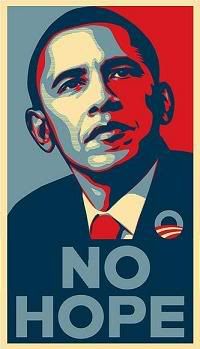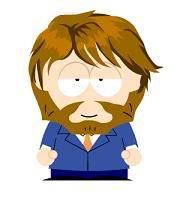This posting reflects my opinions and feelings, so no links will be given at this point.
When the United States was first founded it had two major parties, the
Federalists and the
Democratic-Republicans. The key difference, as I understand it, was that the
Federalists believed that the Federal Government was the primary level of government while the
Democratic-Republicans believed that the state was the primary level of government. Federalists tended to be businessmen, merchants and bankers, while the DRs tended to be farmers and craftsmen. John Adams was generally regarded as the leader of the Federalists while Thomas Jefferson was viewed as the leader of the DRs. The interesting thing was that the parties then agreed on things that now divide us; both parties were in near agreement about basic human nature.
It's no longer true today. While both parties have their respective economic and social models, they are very different because they both view the human animal very differently. The traditional view is that humans on an individual level have Free Will and can make choices about who and what they become, while the "enlightened" view is that humans are primarily a product of their genes and environment and cannot help but be what and who they are.
It's not our power and abilities that decide who we are, but our choices. Albus Dumbledore at the end of
Harry Potter and the Chamber of Secrets.This may shock many of you, but I own a DVD of the movie
A Clockwork Orange; and I sort of like the movie, but I really love the book which is far superior and ends differently. (The movie ends one chapter before the book ends, the movie having a morally ambiguous ending while the book has a fairly solid moral ending.) In the book Alex is a horrible young criminal who is brainwashed into being a perfect citizen, but in having all his violent tendencies completely suppressed, he also loses his ability to function.
Equally important is that he lost his ability to make a moral choice. This really disturbed the Prison Chaplain, who was the only truly good person in the movie and the only person who genuinely cared about Alex. The following exchange takes place after Alex is brainwashed and then, to prove he was no longer capable of violence, a man beat him to a pulp in front of an audience of dignitaries and was incapable of defending himself.
Prison Chaplain:
Choice! The boy has not a real choice, has he? Self-interest, the fear of physical pain drove him to that grotesque act of self-abasement. The insincerity was clear to be seen. He ceases to be a wrongdoer. He ceases also to be a creature capable of moral choice.
Minister:
Padre, there are subtleties! We are not concerned with motives, with the higher ethics. We are concerned only with cutting down crime and with relieving the ghastly congestion in our prisons. He will be your true Christian, ready to turn the other cheek, ready to be crucified rather than crucify, sick to the heart at the thought of killing a fly. Reclamation! Joy before the angels of God! The point is that it works.
In the book after Alex was un-brainwashed, he went back to crime for a while, but tired of it and wanted a real life, thus decided, by his own free-will, to change his life and become a proper citizen. The point was that this time he chose to change.
When I was a teenager I briefly studied Astrology. I don't remember much of it, but I do remember this line:
The stars impell, they don't compell. That was how astrologers allowed for free will in spite of our being destined by the stars. I no longer believe in astrology, but I think that line is how conservatives view our background and genes influencing our decisions; they may make a choice easier or harder, but the choice is still ours.
Now most conservatives acknowledge that our genes and background do influence our decisions but we believe that Free Will is the deciding and most important factor. Most modern liberals do believe in Free Will but believe that genes and background are the more important factor. A few follow the beliefs of BF Skinner who wrote in
Beyond Freedom and Dignity that free will was more of an illusion and all behavior is predetermined. While the more extreme of his ideas are rejected by the modern liberals, they are still strongly influential in policies. It's why so many educators are down on home-schooling and private schools; kids are being educated (thus programmed) in an environment that the elitists don't control, thus they're not being conditioned to be part of the proper program.
Most economic and moral differences between the left and the right come down to a question of just how much does free-will influence our life: completely? mostly? somewhat? it doesn't exist?
In the end, those who don't believe in free-will believe that by molding each generation they can bring about utopia. Huxley described that dystopia in his masterpiece
Brave New Word. A world where every life was pre-planned, perfect and meaningless. It was a world without love or heroes. So much for perfection.
Even the Humanistic
Star Trek (the original series) recognized this in the brilliant episode
The Apple where they find humans living a perfect but pointless life and Captain Kirk makes this observation:
We can't function in perfection. We don't achieve anything.We often say that most people are sheep who are easily led astray. People are sheep not because the can't make choices, but because they don't have to. If they had to make a choice they could.
The bottom line is this. I believe free will is more important than other factors. It is my choices, good and bad, that have led me where I am and not my DNA and background, though they certainly played a part.











